Month: October 2021
Victims of human trafficking being ‘punished and stigmatized’
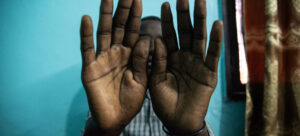
Siobhán Mullally, UN Special Rapporteur on trafficking in persons, said States fail to identify and protect victims, often because of their alleged association with terrorist groups, and related stigma, discrimination, and racism.
“States have an obligation, without exception, to identify and protect victims of human trafficking and must become more attuned to the needs of people trafficked by terrorist groups and as a result of conflict,” she said
According to Mrs. Mullaly, instead of receiving protection, these victims “are being punished and stigmatized.” For her, this is “a very serious concern.”
Vulnerable children
The expert was presenting a report to the General Assembly about continuing failures to identify and assist victims of trafficking, and protect their human rights.
“Trafficking for purposes of forced marriage, sexual exploitation, forced labour and forced criminality is a strategy used by terrorist groups, and is continuing with impunity because of these failures”, she said.
The Special Rapporteur informed that vulnerable children are disappearing from refugee camps and from camps for internally-displaced people.
Young people are also being targeted online by terrorist groups and recruited into lives of exploitation, a problem that has become even more severe during the COVID-19 pandemic.
“In addition to being exploited for sex or forced labour, children may also be exploited in combat, for planting explosives, carrying out armed attacks and suicide bombings”, Mrs. Mullaly said.
Call to action
States and all humanitarian actors have obligations under the Palermo Protocol, which aims to prevent, suppress and punish people-trafficking.
Under international human rights law, these actors should also identify victims of trafficking early and then provide specialised medical, psychological and legal assistance.
“The obligation of non-discrimination is a core norm of international human rights law and applies to States’ obligations to protect the human rights of all victims of trafficking,” the human rights expert said.
Ms. Mullaly concluded with a call on peacekeeping operations, asking them to do more to prevent human trafficking and to identify and protect victims, especially in countries in transition from conflict to peace.
All independent UN rights experts are appointed by the Human Rights Council, and work on a voluntary basis. They serve in their individual capacity, and are neither UN staff, nor do they receive a salary from the Organisation.
Peacekeeping chief encouraged by ‘warming’ relations between Sudan and South Sudan over Abyei

“The warming of their relations was visible in Abyei, where most of the threats to the community were of a criminal nature, not of military nature”, Jean-Pierre Lacroix briefed Council Members.
The area was accorded special administrative status in 2004, and a UN Interim Security Force, UNISFA, operates there to provide support for local policing, and the deployment of armed forces, in accordance with a 2011 Agreement.
Sudan coup: ‘To early to know’
Referring to this week’s military coup in Sudan, he said that “it is too early to know what the impact of this week’s developments in Khartoum will mean” for the region and the Interim Security Force.
“But I am hopeful as I know that all parties in Sudan are, and have been, strong supporters of the Mission”, he added.
Future of the mission
UNISFA was established in 2011. In a resolution, earlier this year, the Security Council asked for a possible drawdown and exit strategy.
Following that request, Mr. Lacroix presented a strategic review, which indicated that UNISFA was successfully continuing its work, to protect the people of Abyei through its military and mine action presence.
In the reporting period, from 16 April 2021 to 15 October 2021, the mission’s humanitarian and recovery work reached more than 103,000 vulnerable people.
Most of the new challenges during this period were related to the mandate of the Joint Border Verification and Monitoring Mechanism (JBVMM).
“Representatives of the community in Gok Machar made it difficult, and eventually impossible, for UNISFA to continue to support the implementation of the JBVMM mandate to a large extent”, Mr. Lacroix informed.
According to him, the review team identified an important space for UN peacebuilding, humanitarian, recovery and development assistance.
“It is my hope that the Council will provide UNISFA with a continued, and somewhat strengthened, mandate in this particular area, while slowly but steadily identifying areas where the military and security side of the Mission could start preparing for an eventual drawdown”, he said.
With respect to the military side, the strategic review proposes two options: keep overall force numbers close to what they are currently, or a lightly reduced troop ceiling.
A positive trend
Parfait Onanga-Anyanga, the Secretary-General Special Envoy for the Horn of Africa, also briefed Council Members on the region, and relations between Sudan and South Sudan.
He noted that most of what he was reporting “may sound a bit removed from the unfolding situation in Sudan which could potentially negatively impact bilateral relations”, but also hoped that “the recent positive trend will not be derailed.”
He said the two countries have been deepening their relationship, pointing out several high-level visits and initiatives in support of each other’s peace processes.
For the Special Envoy, a newly agreed deal to resume export and border trade is a crucial step, but has so far not materialized, having been overtaken by the unfolding events in Sudan.
Regarding Abyei, he said “the long-standing deadlock has hindered any progress, besides leaving the area with a clearly defined status that has continued to stoke instability.”
The Special Representative also highlighted the high-level committees that both countries established, informing that they are currently both reviewing all past agreements.
The goal is to have negotiations, facilitated by a third party, that would lead to the settlement of the final status of the region.
Pandemic impact on jobs, worse than expected: ILO
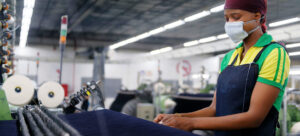
The agency is projecting that global hours worked this year will be 4.3 per cent below pre-pandemic levels, the equivalent of 125 million full time jobs. This is a dramatic revision of the projection made in June, of 3.5 per cent or 100 million full-time jobs.
The eighth edition of the ILO Monitor: COVID-19 and the world of work also warns of a “great divergence” between developed and developing countries, saying it will persist without concrete financial and technical support.
Regional differences
In the third quarter of 2021, total hours worked in high-income countries were 3.6 per cent lower than the fourth quarter of 2019, before the pandemic hit.
By contrast, the gap in low-income countries stood at 5.7 per cent and in lower middle-income countries at 7.3 per cent.
From a regional perspective, Europe and Central Asia experienced the smallest loss in hours, around 2.5 per cent. This was followed by Asia and the Pacific at 4.6 per cent.
Africa, the Americas and Arab States showed declines of 5.6, 5.4 and 6.5 per cent respectively.
Vaccines and fiscal stimulus
This great divergence is largely driven by major differences in the roll-out of vaccinations and fiscal stimulus packages.
Estimates indicate that for each 14 persons fully vaccinated in the second quarter of 2021, one full-time equivalent job was added to the global labour market. This substantially boosted the recovery.
In the absence of any vaccines, globally, the loss in hours worked would have stood at six per cent in the second quarter of 2021, rather than the 4.8 per cent recorded.
The highly uneven vaccine roll out, means that the effect was largest in high-income countries, negligible in lower middle-income countries and almost zero in low-income countries.
According to ILO, these imbalances could be rapidly addressed through greater global solidarity in respect of vaccines.
The agency estimates that if low-income countries had more equitable access to vaccines, working-hour recovery would catch up with richer economies in just over one quarter.
Uneven stimulus
Fiscal stimulus continued to be the other key factor in the trajectories of recovery. However, the gap remains largely unaddressed, with around 86 per cent of all measures concentrated in high-income countries.
On average, an increase in fiscal stimulus of one per cent of annual GDP increased annual working hours by 0.3 percentage points relative to the last quarter of 2019.
The crisis has also impacted productivity, leading to greater disparities. The productivity gap between advanced and developing countries is projected to widen to the highest level since 2005.
ILO Director-General, Guy Ryder, highlighted the unequal vaccine distribution and fiscal capacities saying that “both need to be addressed urgently.”
He pointed to the Global Call to Action for a human-centred COVID-19 recovery, a roadmap adopted last year by the International Labour Conference that commits countries to ensuring that their recovery is fully inclusive, sustainable and resilient.
“It is time to implement this roadmap, which is fully aligned with and supports the UN’s Common Agenda and its Global Accelerator for Jobs and Social Protection,” Mr. Ryder said.
Latin America and Caribbean sees COVID-19 progress, but must remain vigilant
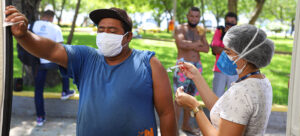
Dr. Jarbas Barbosa, Assistant Director at the Pan American Health Organization (PAHO), was speaking during the agency’s regular media briefing on the pandemic.
He said nearly 44 per cent of the region’s people have been fully immunized, mainly with doses donated bilaterally or through the COVAX solidarity initiative.
Decrease in new cases, deaths
“Today, twice as many people in Latin America and the Caribbean are fully vaccinated against COVID than in August of this year,” he said.
Meanwhile, infections and deaths have also reached their lowest levels in more than a year, with 800,000 new cases and 18,000 deaths reported over the last week.
Although there is reason to be optimistic, Dr. Barbosa urged countries to remain vigilant and continue public health measures, such as mask wearing, physical distancing and avoiding large gatherings.
More vaccines on the way
“While our region has done a great job at accelerating immunization coverage over just a few months, more than half of people in Latin America and the Caribbean remain unprotected,” he told journalists.
“In Guatemala, Saint Vincent and the Grenadines, Jamaica, Nicaragua and Haiti, less than 20 per cent of people have been fully vaccinated.”
Dr. Barbosa also pointed to “good news”, as more than three million vaccine doses are expected in the region this week through COVAX. Deliveries are also set to increase over the remaining months of the year.
Climate change threat
With the COP26 UN climate change conference opening this Sunday in Glasgow, Scotland, Dr. Barbosa also addressed the link between planetary and human health.
He was encouraged that health is “taking centre stage” at the conference, and for the first time ever.
Climate change is “the biggest long-term threat to our public health”, he said, and more than 12 million deaths annually are associated with environmental risk factors.
Extreme weather and rising temperatures have altered ecosystems, displacing people and animals. Humans forced to move have infringed on natural habitats, and animals have sought more hospitable conditions, which has led to a rise in vector-borne diseases such as Zika, Chagas and Dengue.
Part of the solution
Ahead of the conference, PAHO has launched an Agenda for the Americas on Health, Environment and Climate Change, which emphasizes, collaboration, investment and resilience.
But health must also be part of the solution to the climate emergency, he added, as the sector is a large contributor to the greenhouse gas emissions that cause global warming. Estimates indicate it could be responsible for up to 10 per cent of carbon emissions worldwide.
“We can improve by lowering carbon emissions from energy, heating, and cooling operations of health care facilities, and we can adapt our health systems by building greener facilities and by lowering emissions at every stage of our supply chains from production to transportation,” he said.
‘Seize the moment’
While extreme weather is just one of the risks of climate change, Dr. Barbosa stressed that scientists have long warned of how the environment, food systems and living conditions will be affected, all of which will have potentially devastating impacts on health.
“The COVID-19 pandemic has offered a snapshot of how unprepared we are for such a disruptive event,” he said.
“But today, we have an opportunity to build on the lessons from the COVID pandemic to prevent future crises and to strengthen our ability to respond to them when they arrive. We hope our leaders will seize the moment.”
Act swiftly and with determination on Afghanistan, UN chief urges; World Bank suspends aid
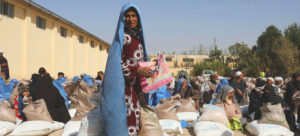
Foreign Ministers from Pakistan, Tajikistan, Uzbekistan and Turkmenistan participated in the meeting held in Tehran, with their Russian and Chinese counterparts joining by video, according to media reports.
Stability through unity
“Afghanistan is confronting an epic humanitarian crisis and is on the verge of a development catastrophe”, the UN chief told the gathering. He urged countries to speak with one voice.
“We can only achieve more stability with a united approach. Together, let us act with determination – and without delay – to help the people of Afghanistan and to secure a better future for all.”
The Secretary-General outlined four areas for action, which he said are of regional and international concern, starting with humanitarian relief. He reported that the UN is undertaking a “massive” humanitarian operation in the country, despite enormous obstacles.
Revive Afghan economy
“We have been acting with the cooperation of the Taliban, who have progressively granted access to the areas requested and provided security when needed,” he said.
Mr. Guterres thanked neighbouring nations for their assistance with moving aid workers and supplies. He also highlighted the need for continued collaboration on the issue of refugees, saying “international support to hosting countries must match the scale of needs.”
With the Afghan economy on the brink of collapse, the UN chief stressed the need to work together to revive it. “Injecting liquidity into the Afghan economy can be done without violating international laws or compromising principles,” he said.
Continued engagement required
Afghanistan’s people also need an inclusive and representative government, he added, one which respects international humanitarian law and upholds human rights and fundamental freedoms.
Mr. Guterres said he was deeply disturbed by violations of human rights, including the rights of women, children and ethnic minorities, and recent deadly terrorist attacks on religious institutions. He called for ongoing engagement “to help move things in the right direction.”
For his final point, the UN chief stressed that Afghans, and the region, “also need a country that is secure – not one that is a haven for terrorism or a centre for drug trafficking.” This, he said, is vital to peace and stability, both in the region and around the world.
World Bank ‘pauses’ aid
In a statement released on Wednesday, the President of the World Bank Group announced that it had suspended all its aid programmes to Sudan, and has “stopped processing any new operations, aas we closely monitor and assess the situation.”
David Malpass said that hoped the “peace and the integrity of the transition process will be restored, so that Sudan can restart its path of economic development, and can take its rightful place in the international finance community.”
The World Bank chief said he had been in Sudan only a few weeks ago, to discuss the country’s transformation, and heard a clear commitment from all parties to work together “toward a more prosperous future for the Sudanese people”.
Syria: Progress still possible, following ‘disappointment’ over constitutional talks
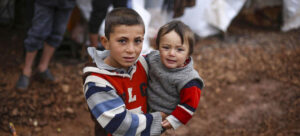
Geir Pedersen reported on the sixth session of the Committee’s so-called “Small Body”, which he convened last week in Geneva.
The hope was that the 45 men and women – who represent the Syrian government, opposition and civil society – would draft a text that would help support a peaceful future for their country after more than a decade of war.
Working mechanism needed
However, they were unable to move from submitting and discussing initial drafts to developing a productive textual drafting process.
It is important the Committee’s work continues “with urgency and purpose”, said Mr. Pedersen, adding that his engagement will continue.
“We need a common understanding on a working mechanism to help the Constitutional Committee discharge its drafting mandate,” he told ambassadors.
“I remain convinced that progress on the Constitutional Committee could, if done the right way, help to build some trust and confidence. But let me stress that this requires real determination and the political will to try to build some common ground.”
In parallel with the Constitutional Committee meeting, Mr. Pedersen also convened a meeting of the Syrian Women’s Advisory Board (WAB) at a location near Geneva.
Learning from Syrian women
The WAB was established five years ago by the Office of the UN Special Envoy, and it ensures diverse women’s perspectives, as well as gender equality, are reflected throughout the Syrian political process and in peace talks.
Although members come from different backgrounds and affiliations, Mr. Pedersen said their discussions revealed a sense of common purpose and urgency around getting the political process to move.
“They also stressed the need for effective institutional arrangements to guarantee the protection and full participation of women in the future of Syria. And they gave me and my deputy valuable ideas and advice,” he said. “We will continue to consult them closely.”
Syrians still suffering
Even amid diplomatic efforts, Mr. Pedersen underscored the need to never lose sight of the suffering Syrians have endured in the ongoing conflict. More than 12 million remain displaced, whether inside their homeland or as refugees.
Martin Griffiths, the UN humanitarian affairs chief, offered more details about the conditions Syrians are facing. Life remains very difficult, and many people are finding things increasingly hard. The violence continues to kill civilians, with attacks and “security incidents” rising this month.
“Daily life in Syria is becoming less and less affordable. Over 90 percent of the population now lives below the poverty line,” said Mr. Griffiths, who is also the UN Emergency Relief Coordinator.
Stepping-up aid delivery
At the same time, Syria is currently experiencing a resurgence of COVID-19, and cases are escalating. Meanwhile, vaccination stands at just two per cent of the population.
“And now, exhausted by years of conflict, poverty and the pandemic, Syrians will soon face another bitter winter,” he added. “And as temperatures start to drop, rain, cold and winter conditions will compound hardship for millions of people.”
The UN and its partners continue to do all they can to scale up assistance. Following a cross-line delivery of food aid into Idleb governorate in northwest Syria this August, preparations are underway for a second delivery next month.
Mr. Griffiths said the UN has also developed a plan for a series of regular cross-line operations to deliver “multisectoral assistance” over the next six months, which will complement aid coming across the border from Turkey.
In breach of diplomatic protocol; ‘don’t choose extinction’ dinosaur urges world leaders

“At least we had an asteroid,” the carnivorous critter warns, referring to the popular theory explaining dinosaurs’ extinction 70 million years ago. “What’s your excuse?”
This isn’t a slice of real life of course, rather the key computer-generated scene from a new short film launched this Tuesday by the UN Development Programme (UNDP), as the centerpiece of the agency’s ‘Don’t Choose Extinction’ campaign.
The dinosaur then tells the audience of bewildered diplomats that “it’s time humans stopped making excuses and started making changes” to address the climate crisis.
A global production
It’s the first-ever film to be made inside the General Assembly Hall using computer-generated imagery, known as CGI, and features global celebrities voicing the dinosaur in numerous languages, including actors Eiza González (Spanish), Nikolaj Coster-Waldau (Danish), and Aïssa Maïga (French).
UNDP research released as part of the campaign shows that the world spends $423 billion annually just to subsidize fossil fuels, enough to cover a COVID-19 vaccination for every person in the world or three times the annual amount needed to eradicate global extreme poverty.
“Think of all the other things you could do with that money. Around the world people are living in poverty. Don’t you think that helping them would make more sense than…paying for the demise of your entire species?” the dinosaur says.
Top economists call for ‘radical redirection’ focusing on healthcare
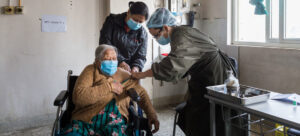
Released on Tuesday, the WHO Economic Council’s new brief, Financing Health for All, points to three main actions: create fiscal space, direct investments, and the administration of public and private finance.
On public spending, the experts say that easing constraints imposed by outdated economic assumptions and reversing reforms that lead to big health care cuts, would allow spending to increase significantly.
According to the brief, investments to ensure equal access to healthcare for everyone, should become the central purpose of economic activity. Public leadership should work to create positive regulatory, taxation, and industrial policies, and boost investment in the field.
Finally, public and private finance should be governed by greater regulation of private health markets through measures that improve outcomes globally and on an equitable basis.
Inequality
The COVID-19 pandemic has highlighted large and growing inequities across the globe in access to healthcare.
For every 100 people in high-income countries, 133 doses of COVID-19 vaccine have been administered, while in low-income countries, that figure is only 4 doses per 100.
Yet, according to the WHO experts, the world “continues to follow the same economic paradigm that doesn’t change the underlying finance structure and applies outdated thinking on economic development.”
From 29 to 31 October, in Rome, national leaders together with health and finance ministers, will come together for the G20 Summit of leading industrialized countries. For the WHO economists, the meeting is a window of opportunity for a “radical redirection”.
The Council believes that a new paradigm is needed to avoid macroeconomic policies that move the world away from the vision of Health For All.
Introducing the new brief, the Director-General of WHO, Tedros Adhanom Ghebreyesus, said the COVID-19 pandemic “has demonstrated that the financing of health systems needs to change radically to protect and promote the health of all people.”
For him, the document “makes a clear and compelling argument for the need for sustained financing to be directed to achieving health for all people, and for investments to be understood as long-term gains for national and global development.”
Beyond financing
Professor Mariana Mazzucato, Chair of the Council, noted that health systems overall are under-resourced, but warned that “more finance is not the only solution.”
“The work of the Council stresses the need to reform and redirect finance in radical ways so that the objective Health For All, is designed into the financial structures, the conditionalities and the partnerships between business and the state,” she explained.
Ambitious objective
The WHO Council on the Economics of Health For All, was established last November, to rethink how value in health and wellbeing is measured, produced, and distributed across economies.
Made up of ten of the world’s most eminent economists and health experts, the Council works in four areas. Briefs in each of these areas, and a final report to be produced in 2023, will be used to build momentum towards changing the structure of economic activity, in favor of realizing the ambitious goal.
The members of the Council are Professor Mariana Mazzucato (Chair), Professor Senait Fisseha, Professor Jayati Ghosh, Vanessa Huang, Professor Stephanie Kelton, Professor Ilona Kickbusch, Zelia Maria Profeta da Luz, Kate Raworth, Dr Vera Songwe and Dame Marilyn Waring.
UN Chief: ‘We need to make lying wrong again’, curb hate speech
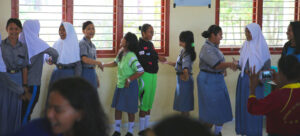
Antonio Guterres was speaking at the Global Education Ministers Conference on addressing hate speech through education.
Remembering the horrors of the Second World War and the genocides in Rwanda, Bosnia and Cambodia, he argued that “denial of historical or scientific facts creates a vacuum of truth that is too easily exploited by the voices of intolerance and hate.”
“There is always room for debate around opinions. There is no room for debate around facts. We need to make lying wrong again”, Mr. Guterres said.
Global event
Convened by The UN Educational, Scientific and Cultural Organization (UNESCO) and the UN Office of the Special Adviser on the Prevention of Genocide (OSAPG), the event is part of the implementation of the UN Strategy and Plan of Action on Hate Speech.
The one-day event gathers Heads of State and Government, and Ministers of Education, to endorse global commitments to address hate speech, both on and offline, through more effective education measures.
Social Media
Opening the Conference, Mr. Guterres said that “social media provides a global megaphone for hate”, with lies and misinformation spreading around the world “at the touch of a button.”
“A dubious webpage or anonymous post can call into question decades, even centuries, of work, thought, study and careful analysis by scientists, historians or other experts”, he argued.
Noting that racist, intolerant and extremist views “can spread like wildfire”, Mr. Guterres pointed to the consequences, such as pushing citizens further apart, undermining democratic ideals and, ultimately, endangering lives.
“Too many people are dying from COVID-19 because they were convinced that accepting the vaccine was the wrong thing to do”, he said.
Solutions
For the Secretary-General, this conference is about discussing ways in which education can help fight back against disinformation and hate speech.
“When we enrich the soil of knowledge with true expertise, with facts, science and historical accuracy, hatred cannot take root”, he explained.
Mr. Guterres believes that critical thought is not simply about “thinking for yourself”, but about “having the tools and skills needed to properly assess theories and facts.”
“And to tilt the scales in favour of authorities and experts who have spent a lifetime studying, assessing and thinking about these issues, by publicly and privately expressing support”, he added.
Noting that educators, teachers and administrators are the first line of defence, he asked the Ministers of Education participating in the event to be ambitious.
“We need to emerge from this conference with bold, concrete solutions on how we can, individually and collectively, step up the fight against hate speech”, he urged.
Appealing to the inclusion of all groups, such as young people, social media companies, governments and political parties, Mr. Guterres concluded by saying that “hatred is a danger to everyone, and so fighting it must be a job for everyone.”
Legal response not enough
According to the UN, hate speech is on the rise worldwide, with the potential to incite violence, undermine social cohesion and tolerance.
It can also cause psychological, emotional and physical harm based on xenophobia, racism, antisemitism, anti-Muslim hatred and other forms of intolerance and discrimination.
Speaking at the Conference, UNESCO Director-General, Audrey Azoulay, reminded that “this hatred is not new.”
“What has changed more recently is the influence and magnitude of social media platforms, which have become an echo chamber that amplifies hate speech”, she said.
For Ms. Azoulay, “the legal response is essential, but it is not enough.”
“We must also mobilize education, because it is through education that we develop critical thinking and deconstruct prejudices”, she explained.
The Director-General also said that UNESCO stands ready to support its Member States, for instance by developing policy recommendations for educational authorities all over the world.

